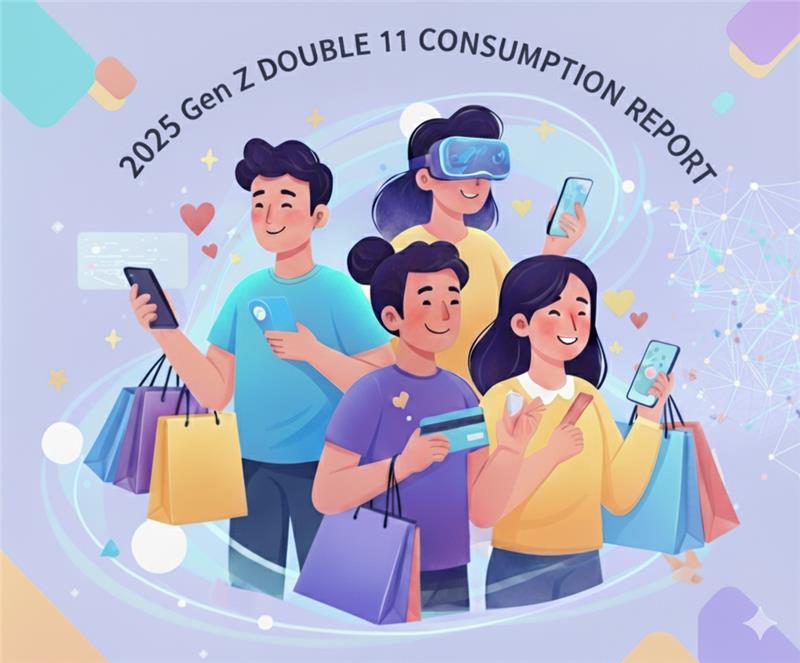
Chinese AI social platform Soul App, in collaboration with the Shanghai Youth & Children Research Center, has released the 2025 Gen Z Double 11 Consumption Behavior Report (the “Report”). This Report offers an in-depth analysis of the shifting shopping patterns and core mindsets of China’s Generation Z—primarily those born after 1995 and 2000—during the massive Double 11 shopping festival. The key finding highlights that “paying for happiness” has emerged as the defining consumption driver for this demographic.
Paying for Experience, Not Just Goods
The findings, jointly released by Soul App’s Just So Soul Research Institute and the “YOUSO” under the Shanghai Youth & Children Research Center, based on Soul App’s platform data and 2,770 valid survey responses, illuminate how Gen Z is embracing a new blend of enthusiasm and rationality in their spending, driven by a desire for experiential and emotional fulfillment.
Gen Z’s consumption decisions are increasingly shaped by an “experience-first” mindset, focusing on purchases that deliver emotional value and personal growth. This shift is evident in the top categories driving their “emotional consumption” during the Double 11 festival:
- Travel-Related Spending accounted for the largest share at 36.9% of emotional consumption, signaling Gen Z’s prioritization of experiences through the stockpiling of flight, hotel, and travel packages.
- Digital Value-Added Services followed closely at 33.1%.
- In-Game Purchases stood at 31.6%.
- Cultural and Creative Collectibles Consumption registered at 31.3%.
Furthermore, cultural consumption, including books, films, TV, music, and paid knowledge courses, reached a significant 21.4%. These trends collectively demonstrate that young consumers are primarily investing in services and experiences that cater to their emotional and intellectual needs, rather than solely focusing on tangible goods.
Rising Confidence Meets Discerning Rationality
Despite economic shifts, Gen Z’s consumer confidence remains robust. Nearly 40% of young respondents indicated their Double 11 budget for 2025 was “higher than last year’s,” a figure that rose to 45.15% in major Chinese cities. Together, those who increased or maintained their budgets accounted for nearly 80%, reflecting an overall positive outlook on consumption.
However, this enthusiasm is paired with a sharp sense of rationality and self-verification. While participation in the shopping festival continues to climb—from 81.3% in 2021 to 93.1% this year—perceptions of the event have become more polarized.
- Appreciation: Many respondents praised the festival for offering “a wider variety of categories” (21.4%), “deeper online-offline integration” (21.3%), and “bigger discounts” (20.8%). Nearly 40% felt the event was “more festive, with discounts more concentrated,” cementing its status as an annual ritual.
- Skepticism: Conversely, a significant number expressed skepticism, questioning the credibility of “lowest price of the year” claims (21.6%) and noting that “the price advantage was not significant” (20.5%). This caution is highlighted by the fact that nearly 40% of consumers felt the need to “verify for themselves” before trusting the discount slogans.
Just So Soul Research Institute observed: “Gen Z consumers exhibit a mindset where enthusiasm and rationality coexist. Their growing participation in and appreciation for the festive atmosphere of Double 11 indicate that the event has become an indispensable annual ritual, defined by both emotional resonance and active engagement. At the same time, they remain discerning—eager for good deals yet cautious of marketing tactics. Their consumption decisions reflect a balance between ‘budget-consciousness’ and ‘self-verification.’”

